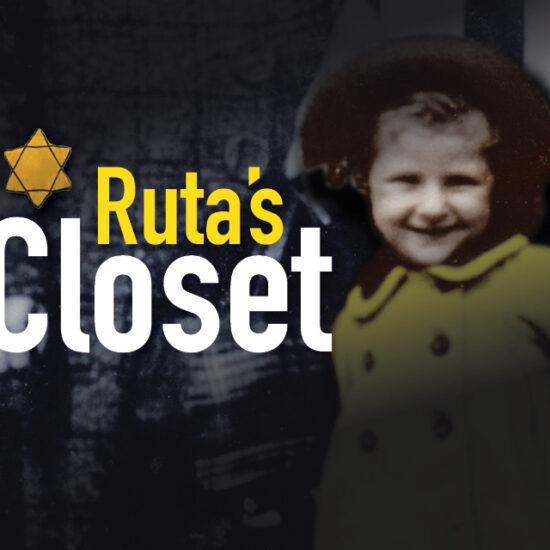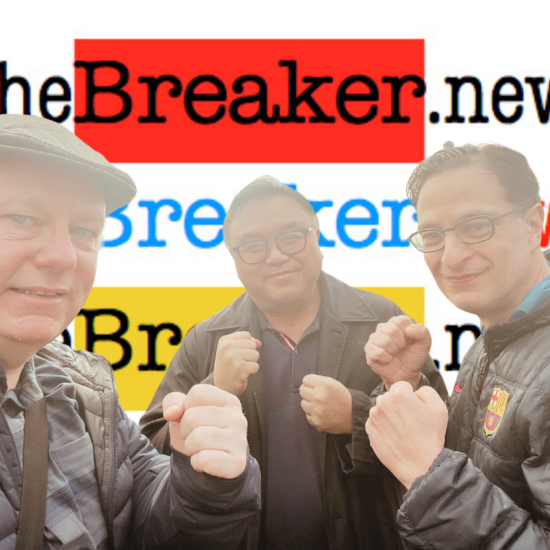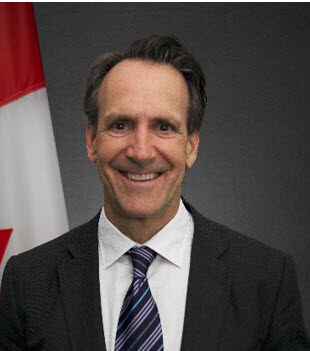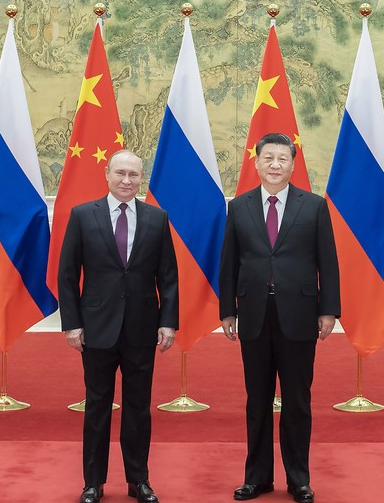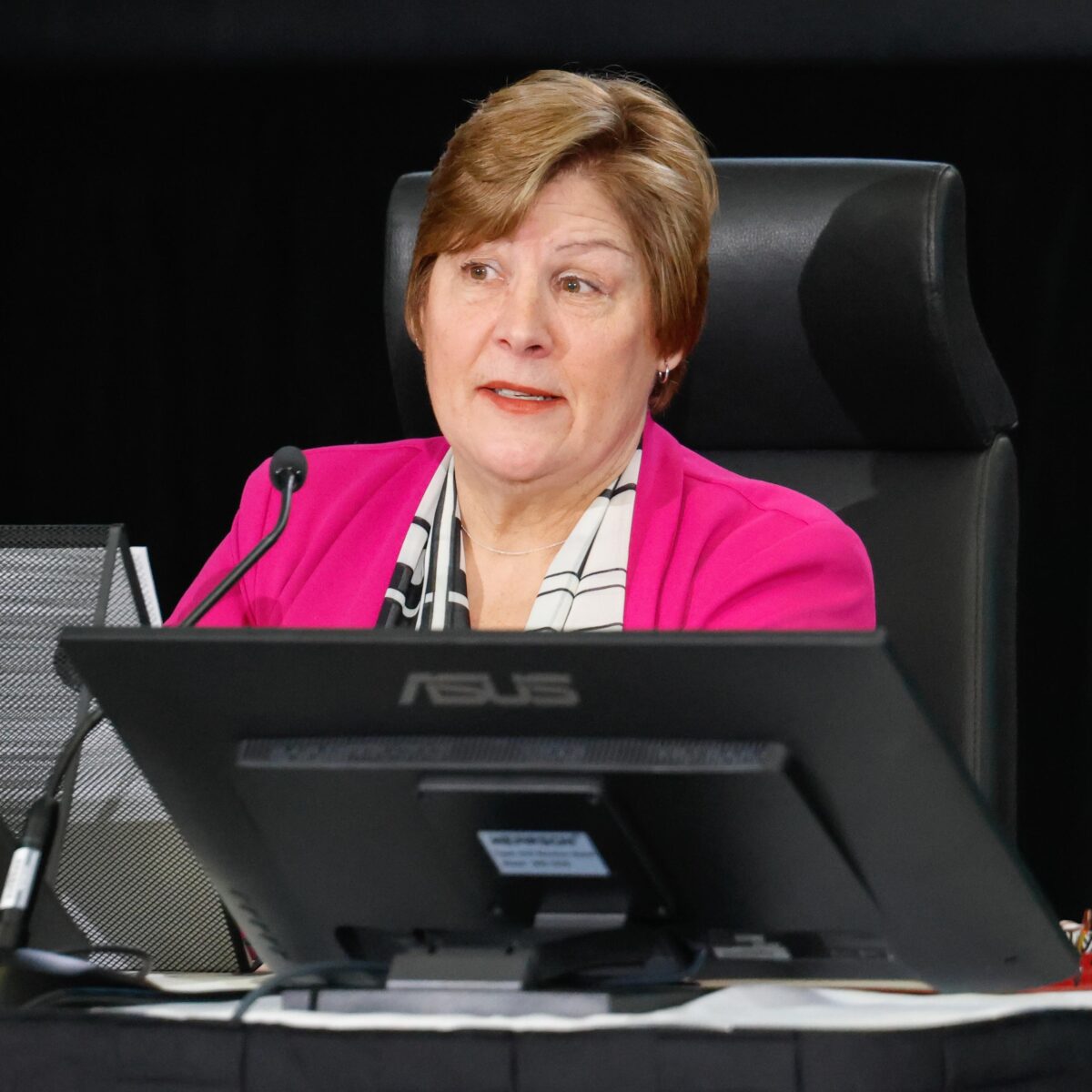
Bob Mackin
The Quebec appeal court judge overseeing the federal foreign interference inquiry refused to release the applications for standing by a trio of politicians that two diaspora groups believe are cozy with China’s Communist government.
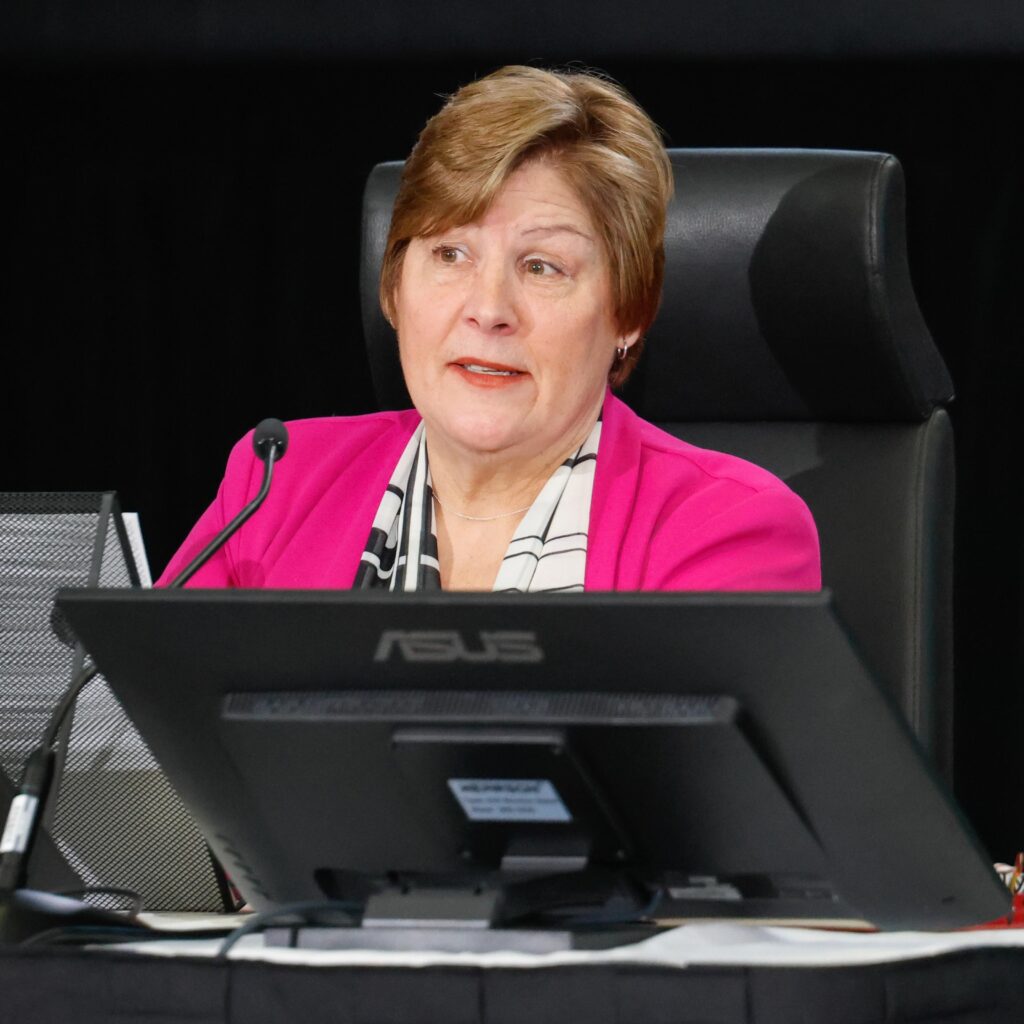
Foreign Interference Inquiry Commissioner Marie-Josée Hogue (PIFI)
Public Inquiry into Foreign Interference (PIFI) Commissioner Marie-Josee Hogue is examining the roles of Chinese, Russian and Indian government and non-government actors in the 2019 and 2021 federal elections. She granted standing or intervenor status on Dec. 4 to 22 groups and individuals that asked to cross-examine witnesses and/or make submissions to the year-long inquiry.
On Dec. 15, this reporter sought access under the open courts principle to copies of the applications from the federal government, the official elections watchdog, two political parties, and seven current and former elected and appointed officials.
Hogue had approved former Ontario cabinet minister Michael Chan, MP Han Dong, Sen. Yuen Pau Woo and former Conservative leader Erin O’Toole for standing, but not Green co-leader Elizabeth May, ex-Liberal aide Chauncey Jung or Alykhan Velshi, the ex-Conservative aide who later worked for consultancy McKinsey and Co. and Huawei Technologies.
Hogue chose to ask for the opinions of all 55 standing applicants. Of the 34 that responded to her, 18 consented or did not object to full or partial disclosure and five took no position. But 11 objected entirely.
On Feb. 8, Hogue ruled that the risks of disclosure would outweigh the benefits after weighing the open court principle with concerns about personal security, national security and confidentiality.
“Although I cannot at this stage reach a definitive conclusion, I am of the view that disclosing, now, the standing applications filed by individuals and organizations representing diasporas may pose a serious risk to their safety and, in certain cases, persons related to or associated with them,” said Hogue’s written decision.
Hogue, however, did order the release of the approved Government of Canada, Conservative Party of Canada (CPC) and NDP applications, plus a heavily redacted copy from the Office of the Commissioner of Canada Elections (OCCE).
Half of OCCE’s 50-page application was blacked out due to confidentiality and national security. It referenced Commissioner Caroline Simard’s March 2 testimony at a House of Commons committee about investigations of foreign interference complaints in the two elections.
“At the time of filing this request, this rigorous review is still ongoing to determine whether there is any tangible evidence demonstrating that reprehensible conduct covered by the Canada Elections Act has been committed,” said the OCCE application.
The Government of Canada argued it was entitled to full participatory rights in order to fulfil its mandate. It also said several federal departments and agencies were “integrally involved in the subject matter.”
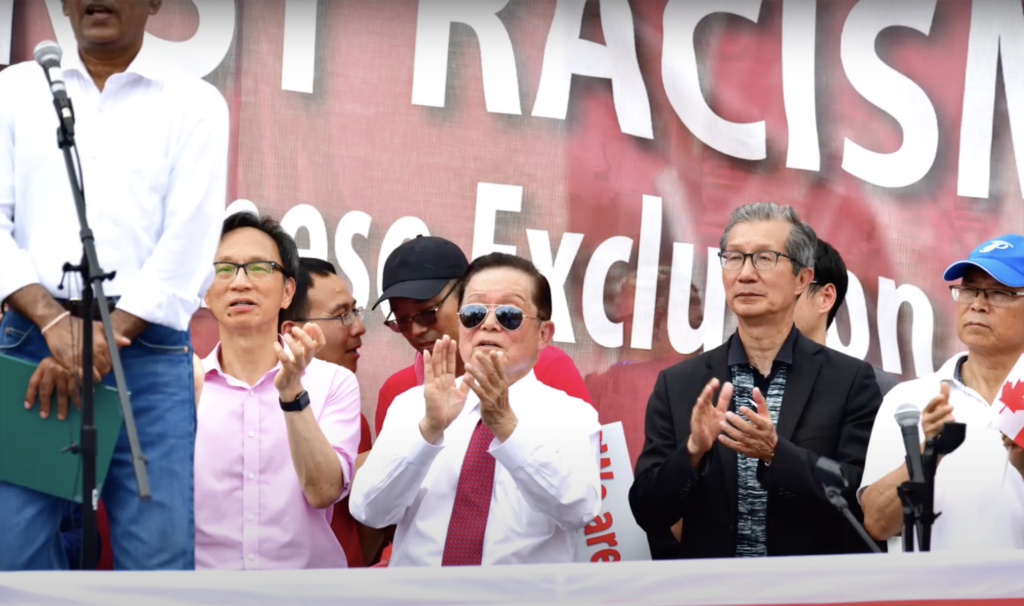
Senators Yuen Pau Woo (left) and Victor Oh, with Ontario politicians Michael Chan and Vincent Ke, applauding Trudeau Liberal backbencher Chandra Arya on June 24 at Parliament Hill (CCMedia/YouTube)
“Canada is a primary source for information on all subject areas of the Inquiry, including classified material, as set out in the [cabinet order]. Canada will also be directly impacted by PIFI’s findings and recommendations,” federal lawyer Gregory Tzemenakis wrote.
The NDP application stated that it has “an interest in understanding any potential foreign interference,” the flow of information on potential security and intelligence threats and how the federal government “detects, deters and counters foreign interference.”
The CPC application, however, was blunt. It argued that the party and its candidates were reportedly foreign interference targets, but not informed as such by federal intelligence officials during the elections.
“The Liberal Party, if not directly, then through its role as the current Government of Canada, will have standing to ‘fully participate’ in the Inquiry,” said the CPC application. “The governing Liberal Party will have an interest in defending the work of the mechanisms it had put in place. The participation of the CPC (and other recognized parties to the extent they seek standing) is necessary to ensure the fair and open participation of entities that were targeted by foreign actors, and who were able to do so with impunity given the failure of mechanisms put in place by the Government of Canada.”
Hogue granted the two parties partial standing, but warned them to avoid partisan behaviour.
The September-announced commission faces a May 3 deadline for an interim report and a Dec. 31 deadline for the final report. It held a week of public hearings at the end of January. More are planned for March.
Hogue’s approvals for Chan, Dong and Woo spurred the Uyghur Rights Advocacy Project to withdraw from the Human Rights Coalition in late January. Canadian Friends of Hong Kong (CFHK) said Tuesday it was boycotting the inquiry because the three politicians are “individuals suspected to have strong ties to the Chinese Consulates, and their proxies.”
CFHK said it did not apply for standing. It feared the inquiry’s independence was compromised from the start by Hogue’s background as a former partner in Heenan Blaikie. The defunct law firm once boasted China-friendly, ex-Liberal Party prime ministers Pierre Trudeau and Jean Chretien.
Support theBreaker.news for as low as $2 a month on Patreon. Find out how. Click here.






